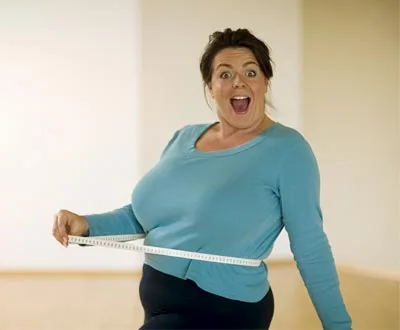Scientists are discovering some incredible ways to lose weight
It seems everyone is after a miracle weight-loss cure. While the range of diet pills currently available can work well for some people, in others they can cause unwelcome side effects or make very little difference.
Scientists are investigating other drugs and treatments that they hope will make it easier for people to lose weight and keep it off. Here are a handful of them.
Anti-fat injectionEven the most needle-phobic person could be tempted by a jab that could help them lose weight. British researchers are trying to develop a drug that they hope will be able to stop people feeling hungry by controlling levels of hormones linked with appetite.
Their aim is for the drug to affect levels of ghrelin, known as the “hunger hormone”, along with other hormones that play a part in weight gain. They know that gastric-band surgery lowers ghrelin levels and want to produce a drug that has the same effect, which would save people having to go through potentially dangerous surgery. Controlling these hormones may also affect the levels of glucose in the body, which in turn could be used to treat type 2 diabetes.
In initial trials of the drug, patients have lost around 1kg a week. A major drawback is that the drug has to be injected three times a day. The scientists leading the research say they would like to develop a tablet version, and it may even be possible to come up with a one-off pill that could permanently fix hormone levels.
one of the doctors involved in the study, Dr Carel le Roux says the drug would be particularly useful for morbidly obese people who struggle to lose weight by changing their diet and lifestyle.
Nerve-zapper Having electrodes implanted in your body that give you tiny electric shocks to stop you eating sounds drastic. But it’s one treatment for obesity that’s being tested in the US at the moment. People who’ve taken part have lost an average of 14% of their excess weight in six months. A quarter of them have lost 25% and one shed 37% – and that’s without dieting.
Researchers from the oayo Clinic in the US say people who had the device implanted reported being less hungry between meals and feeling fuller sooner. The treatment involves having electrodes surgically inserted into the join where your oesophagus (gullet) meets your stomach.
The electrodes are programmed to deliver low-energy electrical impulses to the vagus nerve, which runs from the brain to several parts of the body, including the stomach. This nerve appears to do a variety of jobs, including passing on the message that you’re hungry.
Scientists are working on the theory that if the nerve is blocked by electrical impulses and can’t tell the brain the stomach wants food, your appetite will be reduced and you’ll lose weight. It’s also thought that it may work by making the brain think the stomach is too full to eat more than a small amount.
This theory is based on a very early treatment for ulcers, which involved cutting nerves near the stomach. Doctors noticed the side effect that patients had a reduced appetite and lost weight.
During the operation, patients have electrodes surgically implanted, as well as having a small generator inserted, which sends out the electrical impulses. once the person has reached their goal weight, the system can be switched off and either removed or left in place in case they regain weight and it is needed again.
The secret red wine ingredientImagine being able to take a pill that would let you eat as much as you’d like without putting on any weight. Scientists are working on such a drug at the moment – and it happens to be based on a substance found in red wine.
That chemical is resveratrol, which is believed to have a number of health benefits, including playing a part in preventing heart disease, cancer and Alzheimer’s. Now it’s thought it could have an effect on obesity.
Staff at a US drug company have come up with a man-made version of resveratrol and tested it on mice. The mice did not gain any weight despite being fed a high-fat diet and blood tests showed they were less likely to develop diabetes. They also had more stamina and were able to run twice as far as usual.
However, there was a downside. They had to be made to exercise – they seemed less interested in physical activity than before. It’s thought that resveratrol and the new drug developed from it work by convincing your body to burn off its stores of fat, even if you’ve just eaten plenty of food.
Normally your body only burns off stored fat if there’s not enough food coming in to give it the energy it needs. The company making the drug says it’s a concentrated form and more powerful than the resveratrol found in wine or supplements.
It hopes it will also be used to treat diabetes, rather than just allow people to pig out on unhealthy foods without having to worry about obesity.
6 things you can do now It could be many years before these weight-loss drugs and treatments are available and it’s still not known just how safe or effective they will be. In the meantime, if you know that overeating is contributing to your weight problem, here are some tricks that could help you feel full and eat less.
Eat slowly. It can take around 20 minutes for our brains to register that our stomachs are full and in that time we can end up eating far more than we need.
Eat protein with every meal, such as eggs for breakfast, tuna or salmon for lunch and lean meats for dinner. It will help you to feel full for longer.
Eat more fibre. It fills you up as well as being very good for your digestive system. Go for lots of wholegrain foods and plenty of fruit and vegetables
Have a drink of water. often we mistake thirst for hunger and eat when we should be drinking.
Put food away where you are less likely to see it and be tempted – put those biscuits, chips and lollies at the back of the cupboard, for instance.
Ask yourself, “Am I really hungry?” before you reach for a snack or extra helping of food. often we eat out of habit rather than hunger. If you’re not hungry, don’t eat.











